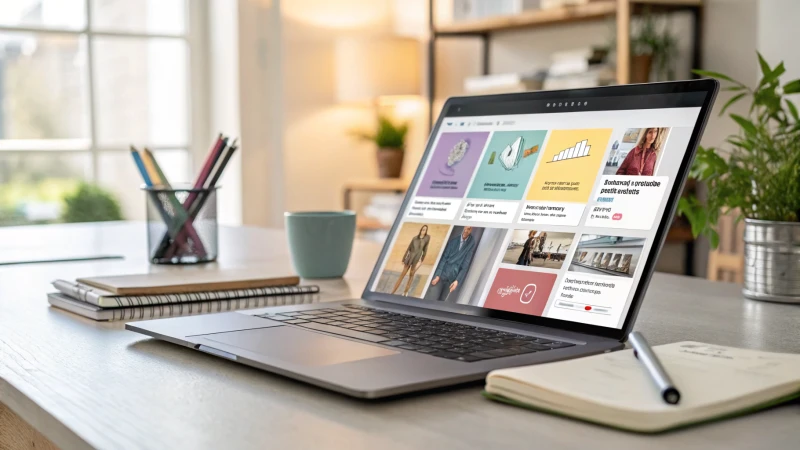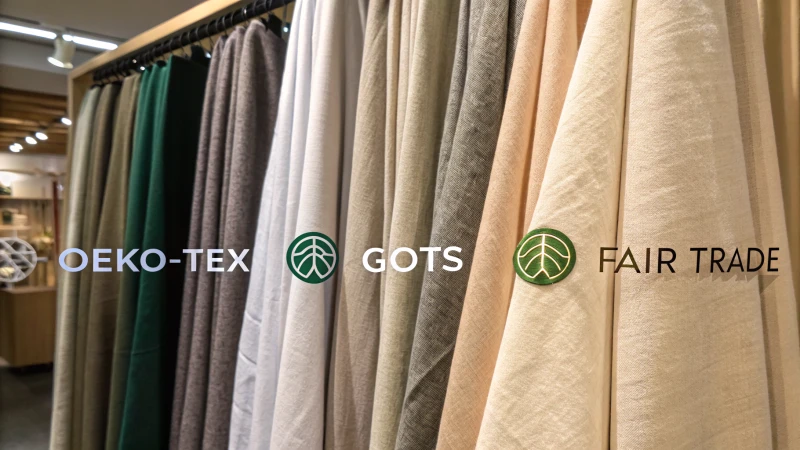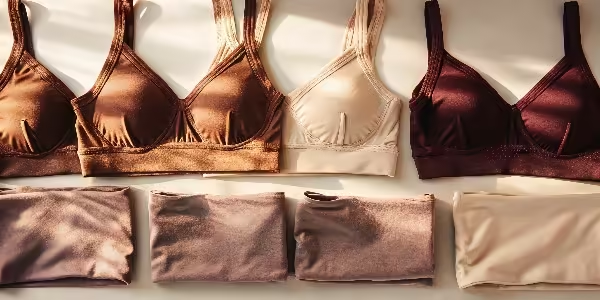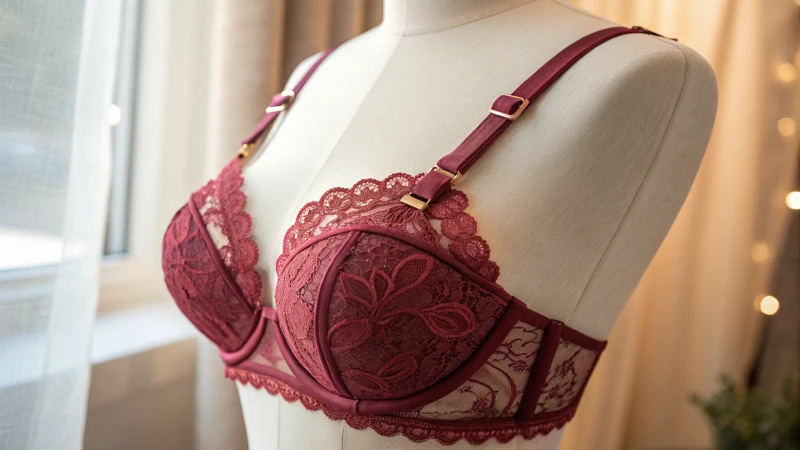
I remember the thrill of dreaming up my first clothing line, only to face the daunting task of finding a reliable manufacturer.
Startups can find reliable clothing manufacturers by exploring online platforms like Alibaba, attending trade shows, asking for samples, and checking compliance certifications. These steps ensure quality, reliability, and alignment with your business vision.
When I first started my journey, diving into each step opened up a world of insights I hadn't anticipated. Researching online was like sifting through a treasure trove of possibilities, each platform offering its own unique set of manufacturers. Attending trade shows, though nerve-wracking at first, allowed me to connect face-to-face with potential partners, giving me a chance to discuss my vision and feel the quality of their products firsthand.
Requesting samples was a game-changer; holding the fabric in my hands and examining the stitching helped me visualize my ideas coming to life. Checking compliance and certifications reassured me that my brand would stand on ethical and environmental grounds. Starting small meant I could test the waters without diving in headfirst, reducing risks and building a solid relationship with the manufacturer. Clear communication turned out to be the backbone of these partnerships, with transparency paving the way for trust.
These experiences taught me invaluable lessons about patience and diligence, ultimately steering my startup towards a path of success.
Trade shows are a reliable source for finding manufacturers.True
Trade shows allow direct interaction with manufacturers, ensuring quality.
Compliance certifications are not necessary for clothing manufacturers.False
Compliance certifications ensure manufacturers meet industry standards.
What Online Platforms Are Best for Finding Clothing Manufacturers?
Finding the right clothing manufacturer online can feel like searching for a needle in a haystack. Let's uncover the top platforms that can simplify this daunting task.
Alibaba, Maker's Row, and ThomasNet are top online platforms for finding clothing manufacturers. These sites offer extensive directories, user reviews, and communication tools to connect with potential manufacturing partners.

Exploring Key Online Platforms
When I first started looking for clothing manufacturers, I felt like I was diving into an ocean without a map. Thankfully, there are some standout platforms that make this journey a bit smoother.
1. Alibaba
I remember the first time I logged onto Alibaba. The sheer number of suppliers was both overwhelming and thrilling. With its detailed search feature1, I could easily filter by product type, minimum order quantity, and even the supplier's location. Plus, the rating system gave me a sense of security about the reliability of my potential partners.
2. Maker’s Row
Since I wanted to explore domestic options, Maker’s Row was a perfect fit. It connects brands like mine with U.S.-based manufacturers, which felt reassuringly close to home. The platform offers industry-specific categories2, allowing me to zero in on apparel manufacturers that matched my brand's needs.
3. ThomasNet
ThomasNet felt like a treasure trove for industrial suppliers when I was searching for specialty production needs. Its advanced search engine categorized suppliers by certifications and capabilities, making it easier to find exactly what I needed without getting lost in a sea of options.
| Platform | Strengths | Ideal For |
|---|---|---|
| Alibaba | Large network, global reach | International manufacturing |
| Maker's Row | U.S.-based, detailed filtering | Local, small-scale projects |
| ThomasNet | Certification-focused search | Specialty production |
Importance of Reviews and Feedback
One piece of advice I can't emphasize enough: always read user reviews and ratings. Platforms like Alibaba and Maker's Row offer these, and they’ve been lifesavers for me, helping to evaluate factors like delivery speed, product quality, and customer service through reviews3 from fellow entrepreneurs.
Leveraging Industry Communities
I’ve found that online forums can be gold mines of information. Sites like Reddit host discussion threads4 where users share their personal experiences—both triumphs and setbacks—in finding reliable manufacturers. It's like having a support group at your fingertips.
Utilizing Additional Tools
These platforms often come with handy tools like direct messaging systems and sample requests. Engaging with these features not only streamlines communication but also builds trust between brands and manufacturers. By using them effectively, I’ve been able to establish strong relationships with manufacturers that align with my production needs and ethical standards.
By diving into these platforms and tools with a bit of strategy and patience, you too can find the right partners for your clothing line. Remember to explore each option thoroughly—sometimes the best connections come from unexpected places—and consider mixing online resources with traditional methods like trade shows for a more rounded approach.
Alibaba offers a rating system for supplier reliability.True
Alibaba includes a rating system to gauge the reliability of suppliers.
ThomasNet focuses on local, small-scale projects.False
ThomasNet is ideal for specialty production, not just small-scale projects.
How Do Trade Shows Facilitate Connections with Manufacturers?
Ever wondered how those bustling trade shows actually work magic for manufacturers like us?
Trade shows open doors for meaningful connections through personal interactions, product showcases, and networking. They allow manufacturers to engage directly with potential buyers, discuss needs, and form partnerships, all while showcasing their innovations.

Face-to-Face Interactions
One of the most rewarding aspects of attending trade shows is the chance to meet potential partners and customers in person. It's like the difference between texting someone and actually sitting down for a coffee together. This face-to-face interaction is where real trust5 is built and rapport is established, which are absolutely crucial in business relationships. Unlike virtual meetings where you might miss out on nuances, being there in person lets you pick up on the immediate feedback and body language that can really steer a conversation.
Showcasing Products and Innovations
Trade shows are our chance to shine a spotlight on our latest products and innovations. I remember attending my first trade show, a bundle of nerves with a suitcase full of prototypes. But seeing people's reactions firsthand as they interacted with our products was priceless. It’s not just about showcasing; it's about watching potential buyers experience your products, ask questions, and imagine the possibilities. Plus, those live demos? They’re gold for showing off what our product capabilities6 can really do.
Networking Opportunities
Imagine walking into a room filled with industry leaders, innovators, and buyers all eager to connect—that's a trade show. It’s like a networking paradise where expanding your contact list happens almost organically. I once attended an event with no specific agenda other than to meet people, and I left with connections that turned into long-term partnerships. Having a networking strategy7 in place can really help maximize these opportunities.
Lead Generation and Customer Engagement
Exhibiting at trade shows offers a unique opportunity to generate high-quality leads. The people who visit your booth are usually genuinely interested in what you have to offer. I’ve found that by engaging with these leads in meaningful conversations while truly understanding their needs can lead to fruitful business relationships. An interactive booth setup can significantly boost customer engagement8, making your brand memorable.
Gaining Industry Insights
Trade shows aren't just about what happens at your booth—they're educational goldmines too. Attending seminars and workshops gives you insights into industry trends and competitor activities. I’ve often walked away from these sessions with a head full of ideas about how to improve our products or tweak our marketing strategies. Staying updated on market dynamics and technological advancements9 can give you the edge you need.
| Aspect | Benefit |
|---|---|
| Face-to-Face Interaction | Builds trust |
| Product Showcase | Real-time demos |
| Networking | Expands contacts |
| Lead Generation | High-quality leads |
| Industry Insights | Stay updated |
Trade shows enable face-to-face interactions.True
Face-to-face interactions at trade shows build trust and rapport.
Manufacturers can't showcase products at trade shows.False
Trade shows allow manufacturers to present and demo their products.
Why Should I Request Samples from Manufacturers?
Ever wondered why asking for samples from manufacturers could be a game-changer for your business? Let me take you through my journey of learning its importance.
Requesting samples from manufacturers is crucial for verifying product quality, assessing production capabilities, and reducing risks associated with bulk purchasing. It ensures the final product meets your expectations and specifications.

Assessing Product Quality
I remember the first time I ordered a large batch of products without asking for samples. Let’s just say, I learned the hard way how crucial it is to see what you're getting before diving in. Samples let you feel the fabric, scrutinize the stitching, and get a real sense of the manufacturer's attention to detail10. They’re like a sneak peek into what you can expect, and skipping this step might mean ending up with products that don't quite meet your standards.
Sample Request Process
To effectively request samples, you can follow a structured approach:
| Step | Action | Details |
|---|---|---|
| 1 | Identify Key Products | Choose products essential for your business needs. |
| 2 | Contact Multiple Suppliers | Reach out to various manufacturers for a comprehensive view. |
| 3 | Specify Requirements | Clearly outline your quality expectations and specifications. |
| 4 | Request & Review Samples | Analyze samples against your criteria and requirements. |
Minimizing Risks
The anxiety of waiting for a bulk order can be intense, especially if you’re unsure about what you’ll receive. Testing samples beforehand has saved me countless headaches and helped avoid those costly mistakes that come with mismatched expectations and reality. This step is about aligning products with your brand's standards—ensuring every piece fits perfectly within your vision.
Building Supplier Relationships
Requesting samples isn’t just about quality control—it’s also an opportunity to build a rapport with suppliers. Opening these lines of communication11 early on allows for discussions about tweaks and improvements before mass production starts. It’s like planting seeds for smoother transactions and better products down the line.
Verifying Production Capabilities
Samples offer insights into a manufacturer’s true production capabilities, including their ability to meet deadlines and handle customizations. Evaluating how well they adhere to your specifications gives you confidence in their capability to manage larger projects.
Establishing Trust and Transparency
This whole sampling process fosters trust and transparency between you and the manufacturer. When suppliers are willing to provide samples, they’re showing a commitment to quality assurance and client satisfaction. It’s about building a foundation where both parties are aligned and comfortable moving forward together.
Key Considerations When Requesting Samples
- Cost Implications: Some manufacturers might charge for samples; negotiate terms upfront.
- Time Constraints: Account for the time needed for sample production and shipping.
- Quality Assurance: Make sure the samples you receive accurately represent what you can expect from bulk production.
By incorporating these practices into your sourcing strategy, you can make informed decisions that truly support your business goals. If you're curious about building strong partnerships12 with manufacturers, exploring additional resources or consulting industry experts could offer deeper insights.
Requesting samples ensures product quality.True
Samples allow direct evaluation of materials and craftsmanship.
Samples guarantee that all products will be defect-free.False
Samples indicate quality but can't ensure every item is flawless.
What Certifications Should You Look for in a Clothing Manufacturer?
Navigating the world of clothing manufacturing can feel like a maze, especially when it comes to ensuring quality and ethics. Certifications are your compass here. But which ones truly matter?
When choosing a clothing manufacturer, look for certifications like OEKO-TEX, GOTS, and Fair Trade. These ensure adherence to quality, sustainability, and ethical labor standards.

Understanding the Importance of Certifications
I remember the first time I set out to find a clothing manufacturer for my line. It was overwhelming! I wanted to ensure that my products were not only top quality but also aligned with my values of sustainability and ethical production. That’s when I discovered the importance of certifications—they were like a reliable friend giving a thumbs up, assuring me that I was on the right path.
Certifications act as third-party validations, confirming that a manufacturer meets certain industry standards13. They’re not just about ticking boxes; they reflect a commitment to practices I deeply care about.
Key Certifications to Consider
- OEKO-TEX Standard 100: This one caught my eye because it focuses on safety from harmful substances, ensuring that the textiles are safe enough even for baby skin. It gave me peace of mind knowing my clothing wouldn’t be causing any harm.
- Global Organic Textile Standard (GOTS): If you’re like me and have a soft spot for organic materials, GOTS is non-negotiable. It covers everything from ecological criteria to social responsibility.
- Fair Trade Certification: Supporting ethical labor is close to my heart, and this certification ensures that workers are treated fairly, which is a win-win in my book.
- ISO 9001: Quality consistency is key, and this certification tells you that the manufacturer has a solid quality management system in place.
| Certification | Focus Area | Key Benefits |
|---|---|---|
| OEKO-TEX | Safety from harmful chemicals | Consumer health protection |
| GOTS | Organic materials | Environmental sustainability |
| Fair Trade | Ethical labor | Fair wages and working rights |
| ISO 9001 | Quality management | Reliable product consistency |
Ensuring Compliance and Benefits
For those who are passionate about sustainability14 like I am, certifications such as GOTS are essential. They guarantee that all processes, from harvesting to labeling, meet stringent environmental standards. It’s not just about making a product; it’s about making a difference.
Verifying these certifications does more than just enhance your business reputation. It ensures compliance with international regulations and acts as a benchmark15 for quality and ethical manufacturing. Plus, it shows your customers you’re serious about transparency and responsible production, which resonates deeply in today’s conscientious market.
OEKO-TEX ensures textiles are free from harmful chemicals.True
OEKO-TEX Standard 100 tests for harmful substances in textiles.
ISO 9001 certification guarantees organic materials use.False
ISO 9001 focuses on quality management, not organic materials.
Conclusion
Startups can find reliable clothing manufacturers by researching online platforms, attending trade shows, requesting samples, and verifying compliance certifications to ensure quality and ethical practices.
Discover detailed steps on utilizing Alibaba's search features to connect with reputable clothing manufacturers. ↩
Learn about Maker's Row's tailored services for brands seeking domestic production solutions. ↩
Understand the importance of reading user reviews before selecting a supplier on Alibaba. ↩
Explore community discussions for personal insights into sourcing clothing manufacturers effectively. ↩
This link explores how personal interactions build trust and rapport, enhancing business relationships. ↩
Discover why live demos are critical for showcasing product capabilities effectively. ↩
Learn strategies to maximize networking opportunities at trade shows. ↩
Find tips on setting up interactive booths to engage customers effectively. ↩
Explore how attending seminars can keep manufacturers informed about new technologies. ↩
Discover methods to evaluate a manufacturer's attention to detail, ensuring high-quality production. ↩
Explore why effective communication is crucial in maintaining good supplier relationships. ↩
Learn strategies for developing robust partnerships with suppliers for long-term success. ↩
Certifications indicate compliance with industry standards, enhancing consumer trust and ensuring product quality. ↩
GOTS certification ensures sustainable practices and organic material usage, appealing to eco-conscious consumers. ↩
ISO 9001 signifies robust quality management systems, ensuring consistent product quality across production batches. ↩






